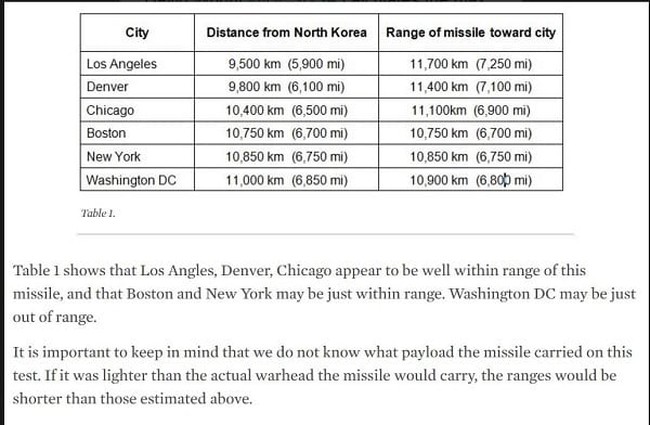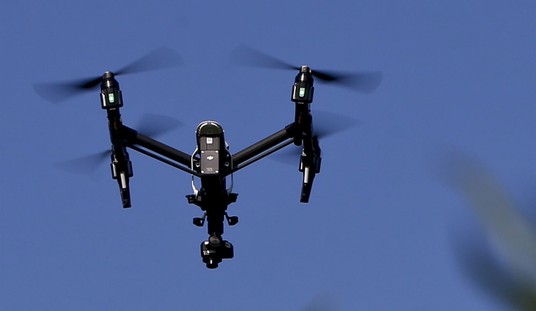A short while ago, I posted on a new North Korean missile test.
New information is now available and it points to a quickening of the crisis that already existed in regards to North Korea’s nuclear and ballistic missile programs.
The missile had a time of flight of about 45 seconds. This puts it in the ICBM class and indicates it has a range of at least 10,000km or 6,200 miles. The ICBM classification is confirmed by the Pentagon:
Pentagon says that Friday missile was indeed an ICBM, "as had been expected." When you put it that way, sounds pretty ho-hum. pic.twitter.com/acGYcMErRT
— Jonathan Cheng (@JChengWSJ) July 28, 2017
In practical terms this is what a 6,200-mile range means:
Here's what it would look like if North Korea launched 10,000 km from Rason (yellow) and 11,000 km (red) pic.twitter.com/IEPzTE4atJ
— Melissa Hanham (@mhanham) July 28, 2017

(Source)
While the Pentagon slides in the ‘as expected’ comment, it is both true and irrelevant. The July 4 test showed the North Koreans had advanced their missile designs much faster than the intelligence community had estimated (key lesson, intelligence community estimates are guesses and they are very often wrong):
U.S. General Mark Milley, the chief of staff of the Army, said on Thursday that North Korea’s July 4 test of an intercontinental ballistic missile showed its capabilities were advancing significantly and faster than many had expected.
Milley, in remarks to the National Press Club in Washington, said there was still time for a non-military solution to the crisis caused by North Korea’s nuclear and missile programs, but cautioned that “time is running out.”
“North Korea is extremely dangerous and more dangerous as the weeks go by,” he said.
U.S. media reported this week that the Defense Intelligence Agency (DIA), the Pentagon spy agency, had assessed that North Korea would be able to field a nuclear-capable ICBM by next year, earlier than previously thought.
The development of an ICBM has been hinted as being a ‘red line’ on several occasions. Nikki Haley said so back in April and this is JCS Chairman General Joseph Dunford at Aspen last week:
“As I’ve told my counterparts, both friend and foe, it is not unimaginable to have military options to respond to North Korean nuclear capability,” he said at the Aspen Security Forum in a conversation with NBC’s Andrea Mitchell. “What’s unimaginable to me is allowing a capability that would allow a nuclear weapon to land in Denver, Colorado. That’s unimaginable to me. And so my job will be to develop military options to make sure that doesn’t happen.”
The seriousness of what happened is underscored by Russia insisting it was an IRBM launched.
We are at the point of confronting the unimaginable. What now?














Join the conversation as a VIP Member